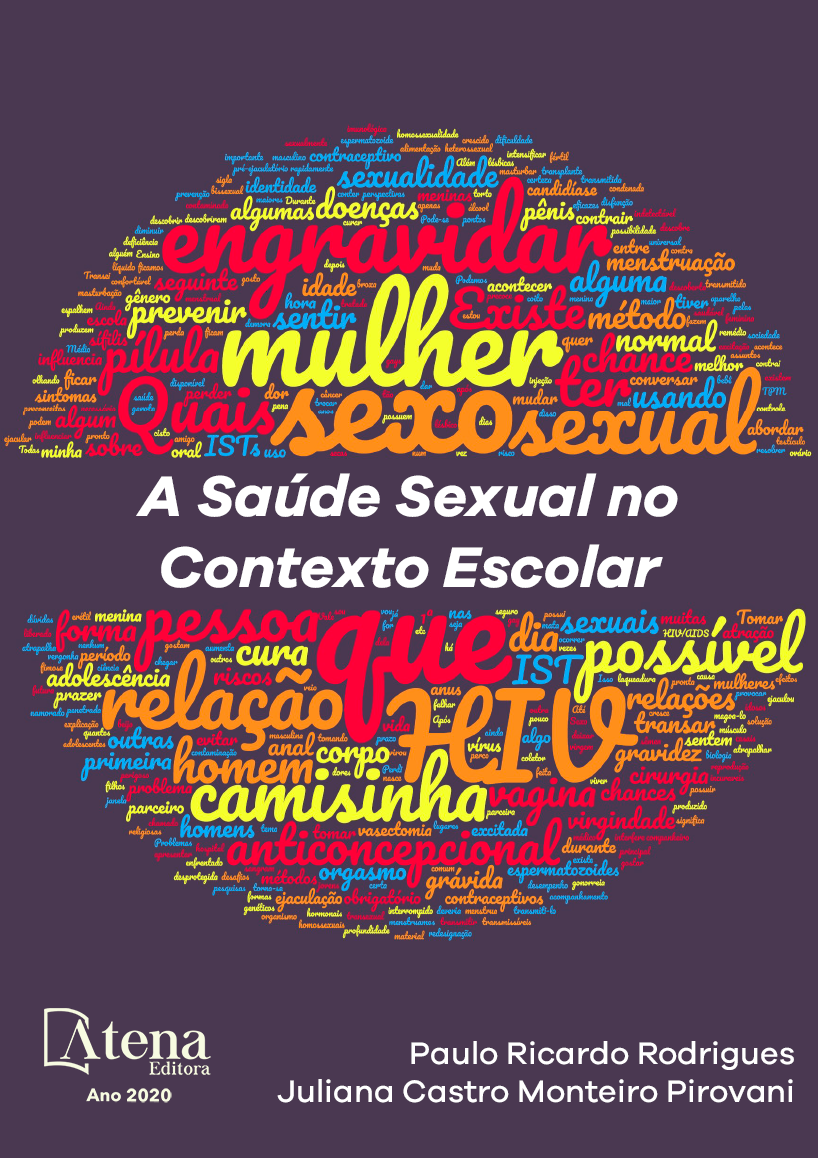
A saúde sexual no contexto escolar.
A sexualidade é uma dimensão fundamental da vida humana. É desenvolvida desde a infância até a idade adulta e influenciada por questões biológicas, históricas, culturais e sociais. A Pesquisa Nacional de Saúde do Escolar (PeNSE), de 2016, mostrou que 27,5% dos jovens do 9º ano já tiveram relações sexuais. Quando se avança para a faixa dos 17 anos, esse índice sobe para 54,7%, indicando a importância do tema saúde sexual e reprodutiva para as escolas brasileiras. A elevação no número de infecções sexualmente transmissíveis (IST), que triplicaram entre adolescentes maiores de 15 anos na última década, e na paternidade não planejada demonstram a importância de políticas públicas voltadas aos jovens. Questões como gênero, orientação sexual, direitos reprodutivos, IST, paternidade não planejada e demais aspectos que envolvam a sexualidade devem fazer parte da prática pedagógica da escola e de instituições parceiras. Este trabalho teve como objetivo avaliar os limites e possibilidades de um e-book para discussão sobre saúde sexual dos adolescentes. O e-book foi organizado em capítulos definidos por perguntas coletadas de maneira anônima com estudantes do 2º ano do ensino médio de uma escola pública no município de Serra-ES. Os assuntos mais citados pelos alunos foram sexo (24,7%), infecções sexualmente transmissíveis (21,7%), métodos contraceptivos (16,9%), gravidez (13,9%) e aparelho reprodutor (10,2%). As questões foram respondidas no e-book e complementadas com textos, imagens e vídeos informativos. Um dos capítulos do e-book foi analisado por estudantes da 2ª e 3ª séries do ensino médio e por professores de ciência e/ou biologia. Todos os professores e cerca de 80% dos discentes consideraram que a utilização de recursos didáticos é importante nas aulas de ciências e biologia e que eles contribuem para a aprendizagem. Em relação ao e-book, a linguagem foi considerada adequada e o conteúdo importante por todos os docentes e por mais de 90% dos alunos. A utilização de vídeos e imagens complementaram as informações do texto, segundo os professores e 98,1% dos estudantes. Ao final da análise, tanto educadores (100%) quanto educandos (96,2%) afirmaram desejar fazer uso do e-book em suas aulas de ciências e biologia. Espera-se que o e-book possa auxiliar o debate sobre saúde sexual nas escolas, contribuindo para redução dos comportamentos de risco dos jovens.
A saúde sexual no contexto escolar.
-
DOI: 10.22533/at.ed.121202506
-
Palavras-chave: Sexualidade. Adolescência. E-book. Escola. Educação.
-
Keywords: Sexuality. Adolescence. E-book. School. Education.
-
Abstract:
Sexuality is a fundamental part of life. It develops from childhood to adulthood and it is shaped by aspects from our biology, history, culture, and society. In Brazil, a 2016 country-wide poll of school students (Pesquisa Nacional de Saúde do Escolar - PeNSE) showed that 27.5% of senior year middle school students had engaged in sexual intercourse. When looking at students aged 17, the figure increases to 54.7%, revealing the importance of sexual/reproductive health as a topic in Brazilian schools. The increase in cases of sexually transmitted infections (STI) among teens older than 15, which have tripled in the past decade, and the increase in unplanned parenthood demonstrate the importance of government policies targeting teenagers. Issues regarding gender, sexual orientation, reproductive rights, STI, unplanned parenthood and other matters regarding sexuality should be part of teaching practices in schools and partnered institutions. This paper’s objective is to evaluate the boundaries and the possibilities of an e-book for the discussion about the teenagers sexual healthy. The e-book’s chapters were planned using anonymous polls with second-year high school students from a public school in the city of Serra, in the state of Espírito Santo, Brazil. The topics most frequently mentioned by the students were sex (24.7%), sexually transmitted infections (21.7%), contraception methods (16.9%), pregnancy (13.9%) and the reproductive system (10.2%). The e-book answered their questions regarding those topics and it was supplemented with extra information from texts, images, and videos. One of the chapters in the e-book was analyzed by second and third-year high school students and by science and/or biology teachers. The use of supplementary teaching materials in Science and biology classes were regarded as important and helpful to the learning experience by every teacher and close to 80% of students. As for the e-book, the wording employed was considered fitting and the contents of the material were considered important by more than 90% of students. Every teacher and 98.1% of students considered the videos and images as useful additions to the information presented in the texts. At the end of their analysis, both teachers (100%) and students (96.2%) stated their wish to use the e-book in their science and biology classes. The e-book is expected to aid in the discussion of sexual health in schools, supporting the reduction of risk behaviors among teens.
-
Número de páginas: 106
- Juliana Castro Monteiro Pirovani
- Paulo Ricardo Rodrigues


